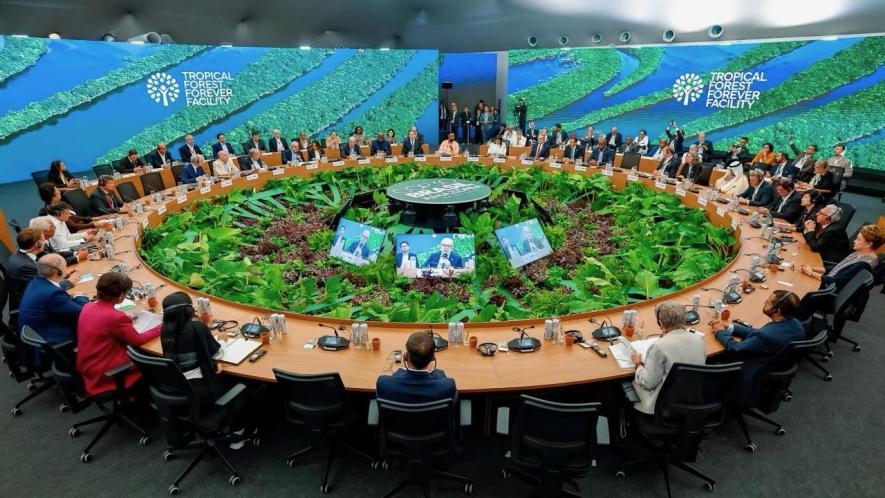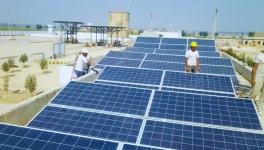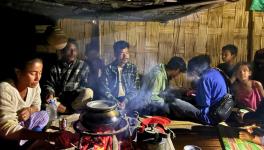COP30 Takes Off in Brazil, Aims to Prevent ‘Climate Collapse

Over 50 world leaders gather in Belem, Brazil for COP30 this month. Photo: Lula/X
On November 6, COP30 began in Brazil, a United Nations meeting attended by nearly 50 world leaders to address the most pressing issues of climate change. The meeting is being held in Belem, a city located in the Amazon, one of the regions most affected and threatened by climate change.
Brazilian head of state Luiz Inácio Lula da Silva is hosting a conference that aims to promote an agenda already agreed upon in the Paris Agreement which, according to the president, has not yet been fulfilled by the nearly 195 signatory countries. To this end, the meeting of world leaders will consist of three working groups (climate and nature; energy transition; and review of the Paris Agreement), in addition to a plenary session.
Lula demands real change
In his opening speech, Lula urged world leaders to fulfill their environmental and financial commitments to projects that combat climate change, which he said has caused a 1.5 degree Celsius increase above pre-industrial levels: “COP30 will be the COP of truth. It is time to take the warning from science seriously. The time has come to face reality. Accelerating the energy transition and protecting nature are the two most effective ways to combat global warming.”
In addition, Lula called for the elimination of fossil fuel subsidies, increased climate financing, and a just energy transition (primarily for countries in the Global South that suffer most severely from the consequences of climate change) before, he said, temperatures rise by 2.5 degrees by 2026.
“We must embrace a new model of development that is fairer, more resilient, and low-carbon … More than 250,000 people could die each year from causes related to climate change. This is not a distant threat: it is already happening in our communities. We live in a scenario of insecurity and mutual distrust, where immediate interests take precedence over our common future.”
During his administration, Lula has made significant efforts to halt the brutal deforestation of the Brazilian Amazon. Last month, deforestation in Brazil reached its lowest levels in 11 years. However, several activists have criticized other actions taken by the Brazilian government, such as the opening of oil wells at the mouth of the Amazon River, the longest and largest river in the world (it has more water than the Mississippi, Yangtze, and Nile rivers combined), and home to the world’s largest river basin.
Xi Jinping and Donald Trump: the notable absentees
Although the event included the heads of state of highly influential countries such as Emmanuel Macron (France), Friedrich Merz (Germany), Gustavo Petro (Colombia), Pedro Sánchez (Spain), and Kier Starmer (UK), among others, the absence of the presidents of China and the United States, the two most important economic powers in the world and also the most polluting, is striking.
Both Donald Trump and Xi Jinping declined Lula da Silva’s invitation, and some have interpreted their absence as a tacit statement that neither Beijing nor Washington will sign commitments that could interfere with their economic development projects, which could essentially compromise the intentions of COP30 when considering the production volume of both economic giants.
“Moral failure and deadly negligence”
Regarding Donald Trump’s absence, Colombian President Gustavo Petro said: “[Donald Trump’s absence] represents a denial of science, leading his society into the abyss, and with it the rest of humanity. Mr. Trump is wrong. Science predicts collapse if the US does not move towards decarbonizing its economy.”
Petro also criticized Europe’s enormous spending on weapons rather than transforming its productive matrix: “That is Europe’s mistake. It is not a defense and security issue. Russia is not the enemy; the climate crisis is the enemy. It is your grandchildren, prime ministers and presidents of Europe, who are at risk, as are all the sons and daughters of European civilization and of humanity as a whole.”
Petro also pointed out that the world is no longer just undergoing climate change, but is also approaching a “climate collapse that means a point of no return, that is, the general death of life on the planet. This is not a fictional apocalypse; it is a real apocalypse.”
The secretary-general of the United Nations, António Guterres, maintained the same tone of severity and alarm in his speech: “Even a temporary overshoot [of 1.5 degrees] will have dramatic consequences. It could push ecosystems beyond irreversible tipping points, expose billions of people to unlivable conditions, and amplify threats to peace and security. Every fraction of a degree means more hunger, displacement, and loss, especially for those who are least responsible [for climate change]. This is moral failure and deadly negligence!”
For his part, Pope Leo XIV sent a statement to COP30 calling for “care for [God’s] creation” and greater investment in nature conservation. While governments’ attention is focused on wars and conflicts, peace is threatened “by a lack of proper respect for creation, by the plundering of natural resources, and by a progressive deterioration in the quality of life due to climate change. These challenges endanger the lives of everyone on this planet,” he said, “and therefore require international cooperation and cohesive, forward-looking multilateralism,” the pontiff said.
Courtesy: Peoples Dispatch
Get the latest reports & analysis with people's perspective on Protests, movements & deep analytical videos, discussions of the current affairs in your Telegram app. Subscribe to NewsClick's Telegram channel & get Real-Time updates on stories, as they get published on our website.
























